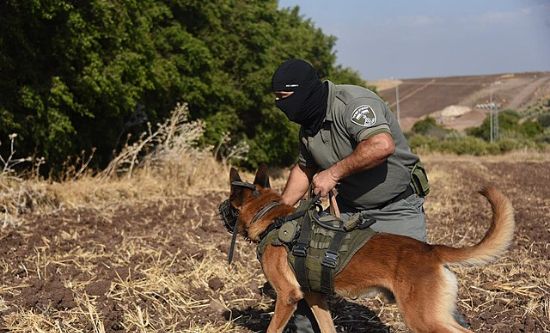
News of the escape of six Palestinian political prisoners from the high security Gilboa prison in northern Israel on 6 September was greeted with jubilation and scenes of celebration across historic Palestine and among Palestinian communities and their supporters across the world. This audacious breakout, tunnelling out of their prison cell using just spoons and other crude implements, was a massive morale boost for the Palestinian people with jubilant demonstrations taking place across Gaza and the West Bank. The response from Israeli forces was to fire tear gas, rubber-coated bullets and live ammunition at the demonstrators wounding at least 100 people across the West Bank, according to the Palestine Red Crescent.
As soon as the Israeli security forces realised the enormity of the escape they flooded the area with troops, police and other security forces. Relatives of some of the escaped prisoners were immediately arrested and detained in an attempt to pressure the escapees. Even with all their manpower, military force and technological prowess, it took until the early hours of 19 September before the last two of the escapees were recaptured in Jenin. As the Israeli forces invaded Jenin they were confronted by youth and resistance forces before the prisoners surrendered to save Palestinian lives. The recaptured prisoners have been subjected to beatings and torture by the Israeli forces with Zakaria Zubaidi ending up in hospital with a broken jaw and ribs. Demonstrations took place in Nazareth, in 1948 Palestine, outside the court where the first four captured escapees were produced.
Of the six escaped prisoners, five are members of Islamic Jihad: Mahmoud al-Ardah, Mohammed al-Ardah, Yaqoub Qadri, Ayham Kamamji and Munadil Naf’at; the sixth, Zakaria Zubaidi is a member of Fatah and had only been placed in the cell the day before the getaway. The response of the Israeli prison authorities to the escape has been predictably violent and vindictive. Prisoners, with Islamic Jihad prisoners particularly targeted, were forced from their cells in Gilboa and other prisons to be searched and relocated. Over 400 prisoners in Gilboa have now been transferred to other prisons. They have been put in isolation and they are being denied access to prison canteens; family and legal visits have been cancelled. In response to such collective punishment prisoners set fire to their cells in a number of different prisons. All the different Palestinian organisations represented in the prisons were united in their response to the Israeli crackdown.
Hunger strikers
Two of the escaped prisoners were being detained without charge under Israel’s ‘Administrative Detention’ laws; as we go to press, six other prisoners held under ‘Administrative Detention’ are on indefinite hunger strike, one has now been refusing food for over 60 days. They are demanding that they be released from imprisonment as they have never been charged with any crime in an Israeli court. ‘Administrative Detention’ is a means for Israel to imprison activists indefinitely without bringing any charges against them. Such detention can be renewed every six months without any evidence needing to be produced in court. It is a law first introduced into Palestine by the British occupation in response to the Palestinian uprising in 1936 and is now used extensively by the Israeli state with 520 Palestinian prisoners currently being held under the legislation.
Palestine Authority collaboration
The resistance of Palestinian prisoners to the brutality and occupation of the Israeli state stands in sharp contrast to the craven collaboration of the Palestinian Authority (PA). At the beginning of September seven activists were charged by the PA in a court in Ramallah accused of ‘illegal gathering, sectarian strife and defamation of important figures’. They had been arrested for their roles in the demonstrations that have taken place in Ramallah condemning the killing of political activist Nizar Banat by PA forces on 24 June. These protests have declared ‘the people want the downfall of the [PA] regime’ and demanded ‘leave, leave Abbas’ (Mahmoud Abbas, the PA president). Mimicking the brutal behaviour of the Israeli occupation forces, the PA security forces have attacked the demonstrators using batons, tear gas and stun grenades.
Nizar Banat was a consistent critic of corruption in the PA and its collaboration with the Israeli occupation forces. He had been arrested a number of times before by the PA; this time they beat him to death with iron bars. The PA has lost the support of the majority of Palestinians. In a recent opinion poll, 69% condemned the PA’s role in the killing of Nizar Banat and the events that followed. A majority of 61% opposed the continuing security coordination between the PA and Israel and 67% supported doing away with the Oslo Accords. The US and Israel are now openly trying to bolster Abbas as the PA’s weakness, particularly in the security field, becomes more apparent. On 30 August, Israeli Security Minister Benny Gantz met with Abbas in Ramallah and offered a loan of $155m to the PA to help with its current financial difficulties. Gantz specified that one of the main areas of concern and discussion had been on joint security matters.
Bob Shepherd
Fight Racism! Fight Imperialism! No 284, October/November 2021




